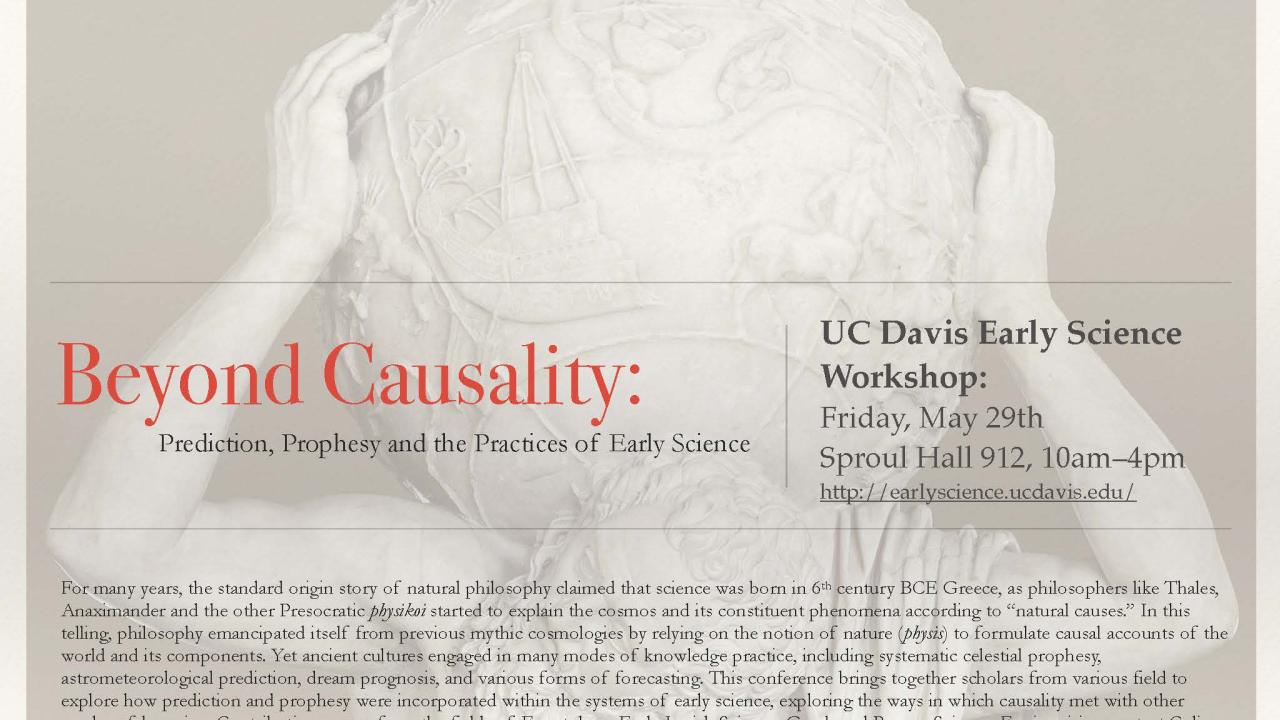
Event Date
For many years, the standard origin story of natural philosophy claimed that science was born in 6th century BCE Greece, as philosophers like Thales, Anaximander and the other Presocratic physikoi started to explain the cosmos and its constituent phenomena according to “natural causes.” In this telling, philosophy emancipated itself from previous mythic cosmologies by relying on the notion of nature (physis) to formulate causal accounts of the world and its components. Yet ancient cultures engaged in many modes of knowledge practice, including systematic celestial prophesy, astrometeorological prediction, dream prognosis, and various forms of forecasting. This conference brings together scholars from various field to explore how prediction and prophesy were incorporated within the systems of early science, exploring the ways in which causality met with other modes of knowing. Contributions come from the fields of Egyptology, Early Jewish Science, Greek and Roman Science.
